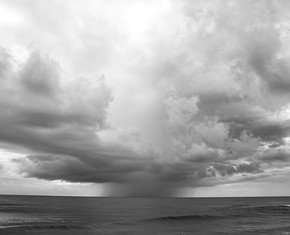The views expressed in our content reflect individual perspectives and do not represent the authoritative views of the Baha'i Faith.
How do the prophets and messengers of God receive their revelations—and then educate humanity?
In his letter to Muhammad Shah, the Bab, the herald and forerunner of Baha’u’llah, described the process:
God beareth Me witness, I was not a man of learning, for I was trained as a merchant. In the year sixty [1844 AD] God graciously infused my soul with the conclusive evidence and weighty knowledge which characterize Him Who is the Testimony of God—may peace be upon Him—until finally in that year I proclaimed God’s hidden Cause and unveiled its well-guarded Pillar, in such wise that no one could refute it. – The Bab, Selections from the Writings of the Bab, p. 12.
Likewise, Baha’u’llah confirms that his revelation is not “of Mine own volition”:
Whenever I chose to hold My peace and be still, lo, the Voice of the Holy Spirit, standing on My right hand, aroused Me, and the Most Great Spirit appeared before My face, and Gabriel overshadowed Me, and the Spirit of Glory stirred within My bosom, bidding Me arise and break My silence. – Baha’u’llah, Gleanings from the Writings of Baha’u’llah, p. 103.
Preexistent, aware of each other, fully coordinated in their actions and words, the manifestations of God educate by degrees the human race, the fruit of creation in whom “are potentially revealed all the attributes and names of God.” Gradually those prophets and manifestations transform this inherent potentiality of human nature into the reality of progressively more enlightened civilizations. From these primal sources of external instruction derive other benign teachers who follow their example with the noble and awesome task of guiding humanity.
A less overt but nonetheless significant external source of guidance is the physical world itself with its inherent capacity to manifest the attributes of God. The Baha’i teachings say that, properly perceived and understood, the world of nature becomes for us a textbook of divine instruction:
Within every blade of grass are enshrined the mysteries of an inscrutable wisdom, and upon every rosebush a myriad nightingales pour out, in blissful rapture, their melody. – Ibid., p. 269.
But whether the source of external assistance be the revelation of a new prophet or some more subtle and indirect instruction, such as the inspired guidance of a parent or teacher, we may conclude that the Baha’i paradigm clearly portrays the human being as needing assistance in order to achieve the condition of independent or autonomous striving that we have described as the purpose of human fulfillment.
Because of this need for external guidance, the Baha’i writings describe the obligation of the parents and the community to instruct its children as one of their foremost responsibilities. Abdu’l-Baha, for example, states that “no nobler deed than this can be imagined:”
… know ye that in God’s sight, the best of all ways to worship Him is to educate the children and train them in all the perfections of humankind; and no nobler deed than this can be imagined. – Abdu’l-Baha, Selections from the Writings of Abdu’l-Baha, p. 139.
The reason for such lofty praise is explained clearly in numerous passages. Abdu’l-Baha states that without training, the human being is potentially the source of incalculable iniquity; with it the human spirit is able to become utterly transcendent:
Every child is potentially the light of the world—and at the same time its darkness; wherefore must the question of education be accounted as of primary importance. – Abdu’l-Baha, Selections from the Writings of Abdu’l-Baha, p. 130.
The glory of man is in the knowledge of God, spiritual susceptibilities, attainment to transcendent powers and the bounties of the Holy Spirit. The glory of man is in being informed of the teachings of God. This is the glory of humanity. – Abdu’l-Baha, The Promulgation of Universal Peace, p. 310.
















Comments
Sign in or create an account
Continue with Googleor